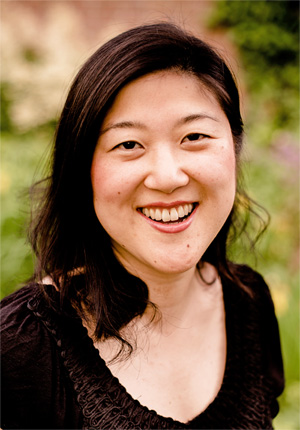As an American, it would never occur to me to make a distinction such as “German” vs. “German national,” but it’s one that I’ve encountered while living in Germany. Not only would I never think to draw such lines, I find them offensive. It’s a debate that hits close to home as my husband and I have lived seemingly parallel lives as second-generation Koreans. The difference though is that I was born and raised in the United States, and he in (then West) Germany. More than geographic though, the greater difference is that I grew up in a culture where I was eventually (in the ‘90s when multiculturalism discussions were de rigueur on college campuses) encouraged to embrace my American identity as both an American citizen and an ethnic Korean. Meanwhile my husband considered himself Korean rather than German for a long time, and he wasn’t the only one. It wasn’t until his late twenties, when he and his family were in fact allowed to become German citizens. While he has since resolved his internal debate comfortably calling himself German, it’s the external one that continues.
While living in Germany, I have seen other examples of this difference in identity and sense of German-ness. I was astounded to learn that a friend of mine here, who was born and raised in southern Germany to Croatian parents, continues by choice to have a Croatian passport rather than a German one. Even though she is entitled to German citizenship and it is an inconvenience whenever she wants to travel to other non-EU countries such as the United States, she felt that by choosing a German passport, she would be giving up her Croatian identity. In her mind, choosing citizenship was the equivalent of choosing her dominant identity. An American friend of mine living in Germany happens to be German on both sides of her family by several generations, somewhat of a rarity in America, and refers to herself with pride as a German American. Her German husband has issue with that and insists that she is American because one can only be German OR American.
As a Korean American, I understand my German American friend and object to her husband’s distinction. Granted, America’s immigrant roots, to which Germany’s own history of immigration is incomparable, are far more inherent in the American psyche allowing our perceptions of fellow citizens to be more flexible and colorful. I am nonetheless discouraged by how often it seems unfathomable that my Korean-looking husband is German. I have repeatedly heard the same shock expressed even by university-educated and well-travelled individuals that my Asian-looking husband can speak such perfect German and has “such a German name.” While on one hand, I admire Germans, generally speaking, for having a healthy interest and curiosity in all things multikulti (multicultural) and for their lust for travel, I believe that there is still an overall societal barrier to accepting that multiethnic German identities are increasing in number and will not remain an exotic margin of German society.
What I am witnessing now reminds me of when I was a child growing up in America. I still have uncomfortable memories of when a substitute teacher in third grade had made a similar unfinished comment about how I had such an “American” name. The unspoken bit was of course the same: that I didn’t “look” American. It is however with relief that I can now say that I hardly ever get such a comment either by Americans or by Germans for that matter. For this reason, I believe that German perceptions will change with increased exposure and time in correspondence with the increased number of immigrants projected by a demographic shift in Europe’s political-economic situation.
Admittedly, in case you could not yet tell, I am a complete product of the PC (politically correct in this case) generation. Having attended mandatory pluralism workshops as a first year student (N.B. not freshMAN) in university, a tri-college minority student institute and other Asian American student conferences throughout college, perhaps my sense of awareness is heightened. I was roaring as an Asian American woman by the time I graduated, but I also know that I have mellowed with age. Don’t get me wrong. Like most people, my husband and I like to talk about ourselves when asked “where [we] really come from.” My objection has been the underlying challenge to my husband’s German identity (German as the adjective and also German as a national).
In the spirit of having a positive and characteristically American happy ending, I believe that in the future, my two ethnically Korean daughters will not face such initial objection when asserting their own German identities. Just as attitudes of acceptance progressed and changed over the last twenty-five years in the United States, I believe they will here too.



0 Comments